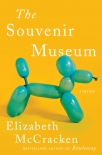An American Tragedy, Theodore Dreiser [best business books of all time txt] 📗

- Author: Theodore Dreiser
Book online «An American Tragedy, Theodore Dreiser [best business books of all time txt] 📗». Author Theodore Dreiser
“Asa!” she called, and then tramping into the next room where he was, his frizzled grayish hair curling distractedly above his round head, she said: “Read this.”
Clyde, who had followed, saw him take it a little nervously in his pudgy hands, his lips, always weak and beginning to crinkle at the center with age, now working curiously. Anyone who had known his life’s history would have said it was the expression, slightly emphasized, with which he had received most of the untoward blows of his life in the past.
“Tst! Tst! Tst!” was the only sound he made at first, a sucking sound of the tongue and palate—most weak and inadequate, it seemed to Clyde. Next there was another “Tst! Tst! Tst!”, his head beginning to shake from side to side. Then, “Now, what do you suppose could have caused her to do that?” Then he turned and gazed at his wife, who gazed blankly in return. Then, walking to and fro, his hands behind him, his short legs taking unconscious and queerly long steps, his head moving again, he gave vent to another ineffectual “Tst! Tst! Tst!”
Always the more impressive, Mrs. Griffiths now showed herself markedly different and more vital in this trying situation, a kind of irritation or dissatisfaction with life itself, along with an obvious physical distress, seeming to pass through her like a visible shadow. Once her husband had gotten up, she reached out and took the note, then merely glared at it again, her face set in hard yet stricken and disturbing lines. Her manner was that of one who is intensely disquieted and dissatisfied, one who fingers savagely at a material knot and yet cannot undo it, one who seeks restraint and freedom from complaint and yet who would complain bitterly, angrily. For behind her were all those years of religious work and faith, which somehow, in her poorly integrated conscience, seemed dimly to indicate that she should justly have been spared this. Where was her God, her Christ, at this hour when this obvious evil was being done? Why had He not acted for her? How was He to explain this? His Biblical promises! His perpetual guidance! His declared mercies!
In the face of so great a calamity, it was very hard for her, as Clyde could see, to get this straightened out, instantly at least. Although, as Clyde had come to know, it could be done eventually, of course. For in some blind, dualistic way both she and Asa insisted, as do all religionists, in disassociating God from harm and error and misery, while granting Him nevertheless supreme control. They would seek for something else—some malign, treacherous, deceiving power which, in the face of God’s omniscience and omnipotence, still beguiles and betrays—and find it eventually in the error and perverseness of the human heart, which God has made, yet which He does not control, because He does not want to control it.
At the moment, however, only hurt and rage were with her, and yet her lips did not twitch as did Asa’s, nor did her eyes show that profound distress which filled his. Instead she retreated a step and reexamined the letter, almost angrily, then said to Asa: “She’s run away with someone and she doesn’t say—” Then she stopped suddenly, remembering the presence of the children—Clyde, Julia, and Frank, all present and all gazing curiously, intently, unbelievingly. “Come in here,” she called to her husband, “I want to talk to you a minute. You children had better go on to bed. We’ll be out in a minute.”
With Asa then she retired quite precipitately to a small room back of the mission hall. They heard her click the electric bulb. Then their voices were heard in low converse, while Clyde and Julia and Frank looked at each other, although Frank, being so young—only ten—could scarcely be said to have comprehended fully. Even Julia hardly gathered the full import of it. But Clyde, because of his larger contact with life and his mother’s statement (“She’s run away with someone”), understood well enough. Esta had tired of all this, as had he. Perhaps there was someone, like one of those dandies whom he saw on the streets with the prettiest girls, with whom she had gone. But where? And what was he like? That note told something, and yet his mother had not let him see it. She had taken it away too quickly. If only he had looked first, silently and to himself!
“Do you suppose she’s run away for good?” he asked Julia dubiously, the while his parents were out of the room, Julia herself looking so blank and strange.
“How should I know?” she replied a little irritably, troubled by her parents’ distress and this secretiveness, as well as Esta’s action. “She never said anything to me. I should think she’d be ashamed of herself if she has.”
Julia, being colder emotionally than either Esta or Clyde, was more considerate of her parents in a conventional way, and hence sorrier. True, she did not quite gather what it meant, but she suspected something, for she had talked occasionally with girls, but in a very guarded and conservative way. Now, however, it was more the way in which Esta had chosen to leave, deserting her parents and her brothers and herself, that caused her to be angry with her,





Comments (0)